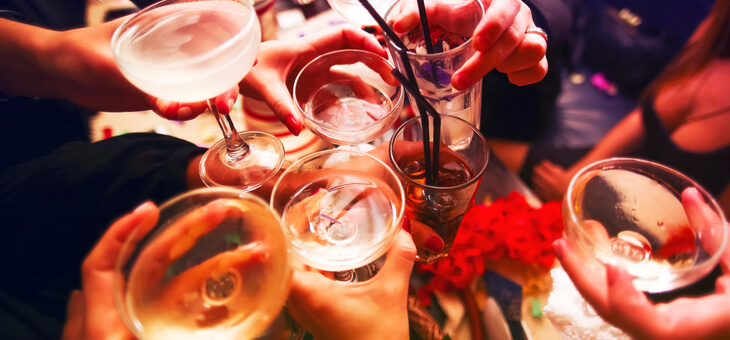Gin has been lifting our spirits for centuries, and thanks to the recent craft gin movement, a refreshing G&T has been bringing tears of joy to tens of thousands of gin lovers who’ve newly fallen for this exceptional liquid.
Read more: Turn your favourite gin into something extra special
So what triggers a generous measure of gin, topped with tonic and garnished with a wedge, to start playing with our emotions and make us want to cry into our glass?

You’ve likely heard gin called ‘mother’s ruin’ and come across the belief that gin makes you weepy, but is it an idea passed on to us by our grandmothers, or is there scientific truth behind it?
We caught up with Liam Scandrett, educator, WSET (Wine & Spirit Education Trust) to find out if different alcoholic drinks really have different effects on us.
“Spirits have a higher concentration of alcohol than beer or wine,” says Mr Scandrett. “The main alcohol in their make-up is ethanol. Ethanol is what makes us feel ‘drunk’.
Read more: How alcohol affects your brain and body
“Ethanol has the same effect – regardless of the drink it’s contained in,” he continues. “The only variables are its concentration, ease of absorption (different body types absorb ethanol differently), and speed of consumption.
“However, the placebo effect of alcohol can also be significant. If you expect a drink to intoxicate you, it’s likely to do so. Likewise, if you consume a spirit expecting it to make you sad, it most likely will,” adds Mr Scandrett.
But, I hear you say, surely gin contains some ingredient that isn’t in any other spirits?

“In truth, gin is closest in nature to vodka – and vodka is renowned as the ‘purest’ and ‘safest’ of all spirits. Gin is basically a flavoured vodka. Juniper, its primary flavouring, is traditionally known as being good for wellbeing.”
So why does gin suffer from a reputation as a tearjerker?
“The answer is a cultural one – so ingrained, we find it hard to shake.”
“When King William III’s government allowed unlicensed gin production in the 18th century, unregulated spirit, often flavoured with turpentine, poured onto London’s streets to be consumed by the poorest of society in the greatest of quantities,” says Mr Scandrett.
“It was at this point that the term ‘mother’s ruin’ was coined – gin was blamed for making women sterile [and men impotent] and London’s population decline, amongst other things. This stereotype of gin has been perpetuated ever since.”
Read more: Alcohol lets the good times roll, study finds
In reality, gin is merely the delivery system for alcohol – and as Mr Scandrett points out: “Alcohol, when overindulged through any drink, has a tendency to result in strong emotions. So, when you next drink gin, please make sure that emotion is joy not sorrow!”
Do you like gin? Do you get sad when you drink it?
– With PA
If you enjoy our content, don’t keep it to yourself. Share our free eNews with your friends and encourage them to sign up.


